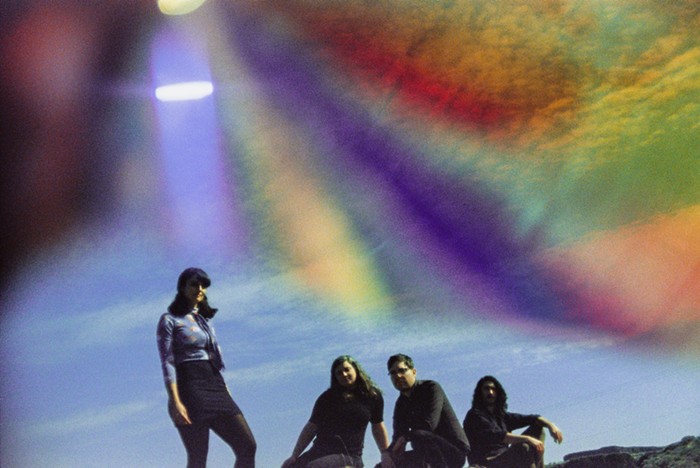w/ Boom Bap Project
Showbox, Wed Feb 20, $30.
Toward the end of the hiphop movie Wild Style, the graffiti artist "Lee" Georges Quinones comes to this realization: The future stars of the hiphop enterprise will not be the breakers, or the DJs, and certainly not the graffiti artists--graffiti artists will be the saints of hiphop--but the rappers. At the time (Wild Style was made in 1982), hiphop was more an urban fad than a substantial cultural movement, and so Quinones' pronouncement was unexpected and even laughable. But today no one laughs, and Quinones' words are hallowed by an aura of prophecy.
The rapper did outlive and outshine all other elements in the hiphop realm. Indeed, one can argue that the rapper is all that remains, and the other forms (turntablism, dancing, writers) have all become historical, frozen in time like the lost-and-found pop objects in the EMP. The rappers ended up stars because they offered something we love to consume: a personality. More than poetry or intelligence, central to the success of the rapper was the formation and eventual marketing of an original personality.
This is why we know who Busta Rhymes is and have no clue who "Sweet Daddy" Sammy B is. "Sweet Daddy" Sammy B was the DJ for the Jungle Brothers, and is now forgotten not because his band fell apart, but because DJs don't assert their personalities. DJs don't need a personality; they deal with machines and not with people. At hiphop shows, the DJ is always deep in the background messing with objects: record containers, records, turntables, mixer knobs, and DAT decks. Everyone, however, knows who Busta Rhymes is: He's a superstar who has made a career out of promoting and refining his extreme personality, his eccentric presence.
Once a member of a Long Island rap group composed of three personalities--Leaders of the New School--Busta Rhymes arrived at celebrity at the very end of A Tribe Called Quest's "Scenario." The track presented six rappers who, in steady succession, said where they're from, what they're about, what they thought about the world and women, and so on. The most striking personality on "Scenario" was Busta Rhymes; he delivered the loudest, most extreme, and most aggressive performance. Indeed, how could anyone miss or even forget a rapper who could "RRRRRROAW RRRRRRROAW like a dungeon dragon"?
If the mode of some rappers is to walk the "thin line between rap and reality," as Smiff-N-Wesson put it in "Stand Strong," then Busta Rhymes' mode is to walk the thin line between rap and insanity. He is not the first to define his rap personality in this way (before Busta Rhymes there was crazy Flavor Flav of Public Enemy). Nor is he the most accomplished at expressing all of the wild possibilities of this type of rap personality (Ol' Dirty Bastard of Wu-Tang Clan has that honor). But he has been commodified and marketed better than anyone else, including Mystikal, his archrival.
After his first and best CD, The Coming (1996), Busta Rhymes dissolved into a mess of guest appearances. His exuberant personality became a hot item, and he eagerly sold it to anyone who could afford it. But then again, it's not fair to be critical of Busta's unwavering commitment to the art of guest-appearing, because, obviously, his stardom was established by a guest appearance on "Scenario." So teaming up with Janet Jackson, TLC, LL Cool J, Boyz II Men, and Ozzy Osbourne--to name a pitiful few--was the most practical thing for him to do.
Busta Rhymes is now making a serious effort to launch his personality to the next level: Hollywood. But he has yet to meet success. When outside the fluid medium of music, his personality ends up nothing more than that of a dry sidekick, as has been his fate in such films as The Rugrats Movie, Shaft, and Finding Forrester. Busta Rhymes' personality has its limits: It can't prosper in books, video games, or cinema; it can only be sustained and projected by music, hiphop music.



















